Middle East
Are Iran and the US having ‘direct’ talks on the nuclear file? | Israel-Palestine conflict News
In a news conference on April 7, United States President Donald Trump said there were direct talks between Iran and his administration on the future of Tehran’s nuclear programme.
“We’re having direct talks with Iran,” Trump said. “On Saturday, we have a very big meeting.”
Iran denied the direct talks but admitted talks were set to take place through Omani mediation.
Trump’s announcement came as a surprise to many, as Iran has long refused to hold direct talks. So, has something changed?
Here’s everything we know so far.
What did Trump say?
Interestingly, he has doubled down on the talks being “direct”, saying they have begun and the next meeting would be on Saturday.
“A lot of people say, oh, maybe you’re going through surrogates or you’re not dealing directly, you’re dealing through other countries,” he said.
“No, we’re dealing with them directly. And maybe a deal’s going to be made.
“Doing a deal would be preferable to doing the obvious,” he said, presumably in reference to attacking the regional giant, something that US ally Israel has done twice in the last 12 months.
In early March, Trump told reporters that he had written to Iranian authorities demanding talks on the country’s nuclear programme and threatening military action if there was no reply.
Iran’s Supreme Leader Ayatollah Ali Khamenei said at the time that Iran would not negotiate with “bullying governments”.
Trump has until now applied what he calls a policy of “maximum pressure” on Iran, consisting of intensified sanctions.
What did Iran say?
Iran’s Foreign Minister Abbas Araghchi said indirect talks between himself and US Special Envoy for the Middle East Steve Witkoff would take place in Oman.
“It is as much an opportunity as it is a test,” Araghchi wrote on X.
Iran has long said it will not hold direct talks with the US, but agreed to work through an Omani intermediary, who was announced by Iranian state media to be Omani Foreign Minister Sayyid Badr Albusaidi.
Iran and the United States will meet in Oman on Saturday for indirect high-level talks.
It is as much an opportunity as it is a test. The ball is in America’s court.
— Seyed Abbas Araghchi (@araghchi) April 7, 2025
Iran’s messaging has oscillated between an openness to negotiate and rejection of the US’s threatening tactics.
Iran’s President Masoud Pezeshkian said in September that direct talks were possible if the US showed it was amenable to good-faith talks.
“We are not hostile towards the US. They should end their hostility towards us by showing their goodwill in practice,” Pezeshkian said at the time. “We are brothers with the Americans as well.”
However, earlier this week, Araghchi questioned Washington’s sincerity in calling for negotiations, saying on Sunday, “If you want negotiations, then what is the point of threatening?”

What would Trump want to negotiate?
Despite bombing Yemen and allowing Israel to have a free hand in Lebanon and Syria as well as to restart the war on Gaza, Trump says he wants to be seen as a “peacemaker”.
He says he wants to negotiate Iran’s nuclear programme, to make sure that Iran never builds a nuclear weapon.
During his first term in office, Trump actually withdrew the US from a nuclear deal between Iran and world powers that curbed Iran’s nuclear programme in return for some sanctions relief.
After withdrawing, Trump reapplied sanctions. He said any agreement with Iran would have to limit its conventional weapons arsenal as well, not just the nuclear programme.
In recent weeks, he has said Iran is materially aiding Yemen’s Houthis, blaming Iran whenever the Houthis launch an attack on Israel or what they say is Israel-linked shipping in the Arabian or Red seas.
It is not clear if that will come up in negotiations.
Trump may also want to discuss Iran’s increased oil sales to China.
What would Iran want to negotiate?
Iran is interested in sanctions relief to ease economic pressure on Tehran as the country suffers an economic crisis that has hit all sectors of society.
This would include assurances that Iran would be able to access the SWIFT money transfer system as well as international investment.
However, Iran also wants recognition of its nuclear programme, including the right to some level of enrichment and to use its centrifuges, built since 2018.
That said, the two sides’ starting positions are further apart than when negotiations first started on the Joint Comprehensive Plan of Action (JCPOA), widely known as the “Iran nuclear deal”.
Iran is asking for more extensive sanctions relief than provided under Obama, while Trump has threatened to bomb Iran if they don’t cut a deal.
Isn’t there already a deal on Iran’s nuclear programme?
Yes, the JCPOA.
As we mentioned above, it exchanged assurances from Iran on limiting its nuclear programme for sanctions relief.
Trump withdrew the US from the agreement in 2018, and his close ally, Israeli Prime Minister Benjamin Netanyahu, has been one of the loudest voices opposing the JCPOA.
Trump and Netanyahu are in agreement, saying the JCPOA didn’t go far enough for long enough, in reference to the JCPOA only prohibiting certain nuclear activities for 10 to 15 years.
They said Iran’s conventional weapons programme should be included in any deal with Iran, and that any relief the Iranian economy receives would only enable Tehran to fund its regional allies to carry out activities assumed to “threaten Israel’s security”.

How close is Iran to a nuclear weapon?
No one really knows.
Iran says its nuclear programme is for peaceful purposes and it does not want to develop a nuclear weapon.
Supreme Leader Khamenei issued a religious ruling to that effect in 2003, and that has been the cornerstone of Iran’s nuclear policy since.
Some Western analysts claim that, in terms of capabilities, Iran is incredibly close to a nuclear weapon.
In March 2025, Rafael Grossi, the director general of the International Atomic Energy Agency, raised concerns over Iran’s enrichment of uranium. Iran has a stockpile of uranium enriched to about 60 percent, the only non-nuclear state to have that.
While Iran has maintained that it does not want a nuclear weapon, Iranian leaders have made it clear that the decision rests solely with them.
In March, Khamenei said: “If we wanted to build nuclear weapons, the US would not be able to stop it.”
Middle East
Deadly, sombre Good Friday as 58 people killed in Israeli attacks on Gaza | Israel-Palestine conflict News
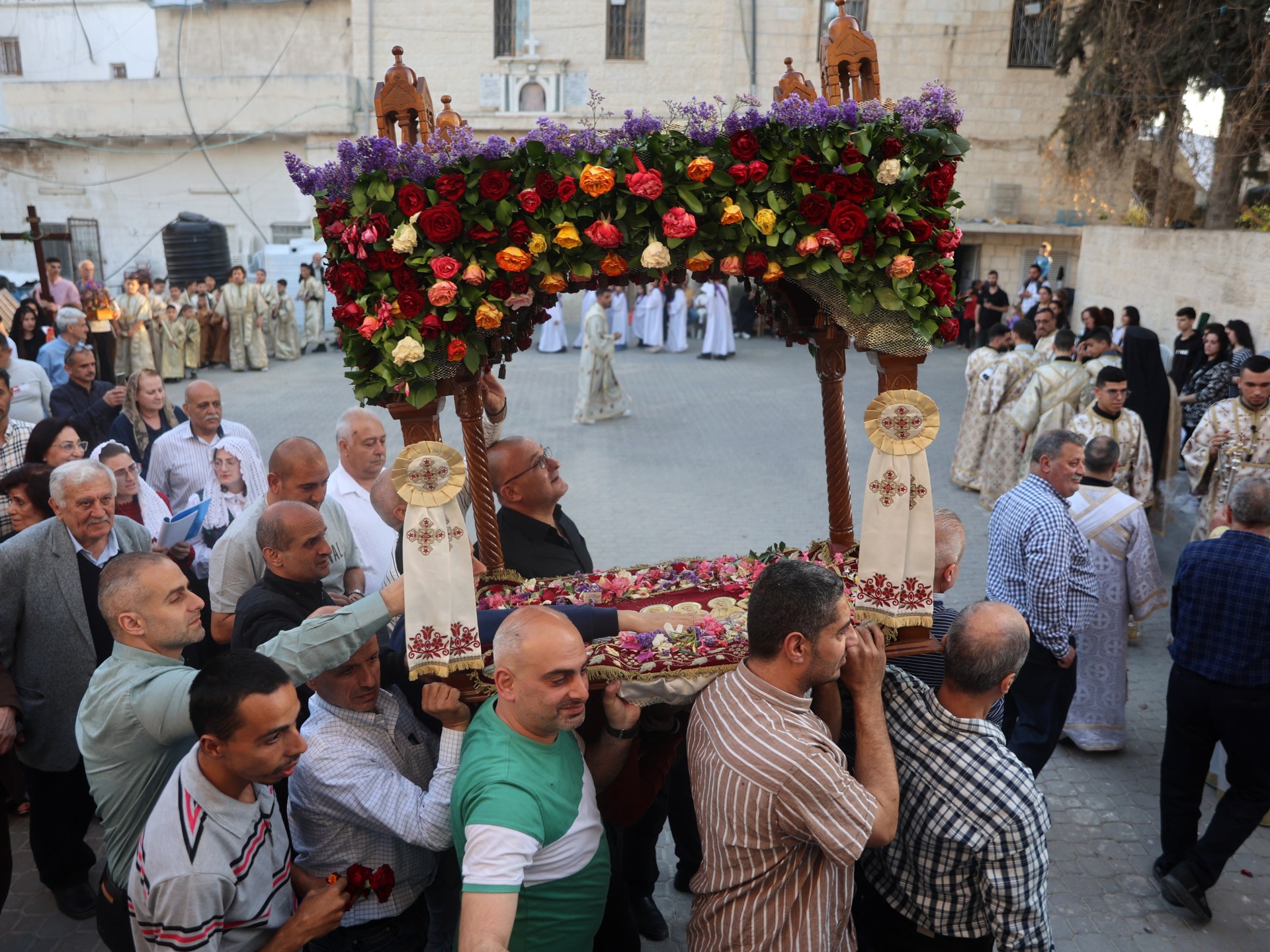
Palestinian Christians in Gaza and the occupied West Bank are holding temperate gatherings leading up to Easter.
Israeli strikes on Gaza have killed at least 58 Palestinians in one day as Christians mark Good Friday in the besieged and bombarded enclave.
More than half of the casualties were in Gaza City and northern Gaza, but deadly attacks took place across the Palestinian Strip, including in Khan Younis and Rafah in the south, medical sources told Al Jazeera on Friday.
The Israeli military said troops were operating in the Shaboura and Tal as-Sultan areas near Rafah, as well as in northern Gaza, where Israel has taken control of large areas east of Gaza City.
On Friday, Israel’s defence minister, Israel Katz, repeated that Israel intended to achieve its war aims.
“The [Israeli army] is currently working towards a decisive victory in all arenas, the release of the hostages, and the defeat of Hamas in Gaza,” he said in a statement.
Palestinian Christians in Gaza however continued to hold temperate gatherings leading up to Easter, amid the attacks.
Speaking to Al Jazeera from a local church, Ihab Ayyad said he used to gather with other congregants and visit his neighbours’ homes every year to celebrate.
“This year, we didn’t make the visits because of the total destruction everywhere, as the [Israeli] occupation forces have levelled most of the houses of my relatives and my neighbours,” Ayyad said. “A lot of my relatives and neighbours were martyred or displaced in different places. We haven’t celebrated because we feel very sad.”
Ramez al-Soury said he used to travel out of Gaza to Bethlehem or Jerusalem for the holy week.
But now, an “atmosphere of war” permeates Gaza. “The death smell is everywhere. The smell of killing and destruction is putting a lot of pressure on us,” he said.
Reporting from Gaza City, Al Jazeera’s Hani Mahmoud said the Christian community is holding onto their faith and has gathered at one of the oldest churches in the world in Gaza – not in defiance but in devotion.
“In Gaza, Good Friday is the power of faith and the quiet strength of those who still believe in peace even when the world around them is nothing but a stage filled with violence and death,” he said.
West Bank settler violence
Rituals to mark Good Friday and Easter have also been held in the occupied West Bank.
There are about 50,000 Palestinian Christians in the region. Israeli authorities, however, require them to acquire permits to travel to Jerusalem, making it difficult for many to join those celebrations.
Moreover, Israeli settlers and the military also attacked Palestinian people on their land in the town of Biddya, in the Salfit governorate in the occupied West Bank, according to Al Jazeera Arabic on Friday, tempering the celebrations.
The Palestine Red Crescent said that a Palestinian was injured in the attack.
Local sources also told Al Jazeera Arabic that dozens of settlers stormed Jabal al-Urma, a hill in the town of Beita in the Nablus governorate, under the protection of the Israeli army.
Settlers are Israeli citizens who live illegally on private Palestinian land in the occupied West Bank and East Jerusalem.
Israeli settler and military violence has soared across the West Bank – particularly in the north of the territory – since the war on Gaza began in October 2023. The United Nations has said this violence has displaced roughly 40,000 Palestinians since Israel began a new military operation in the occupied West Bank in January.
Middle East
Allies say Ghannouchi ‘unjustly’ held, as he marks 2 years in Tunisian jail | Human Rights News
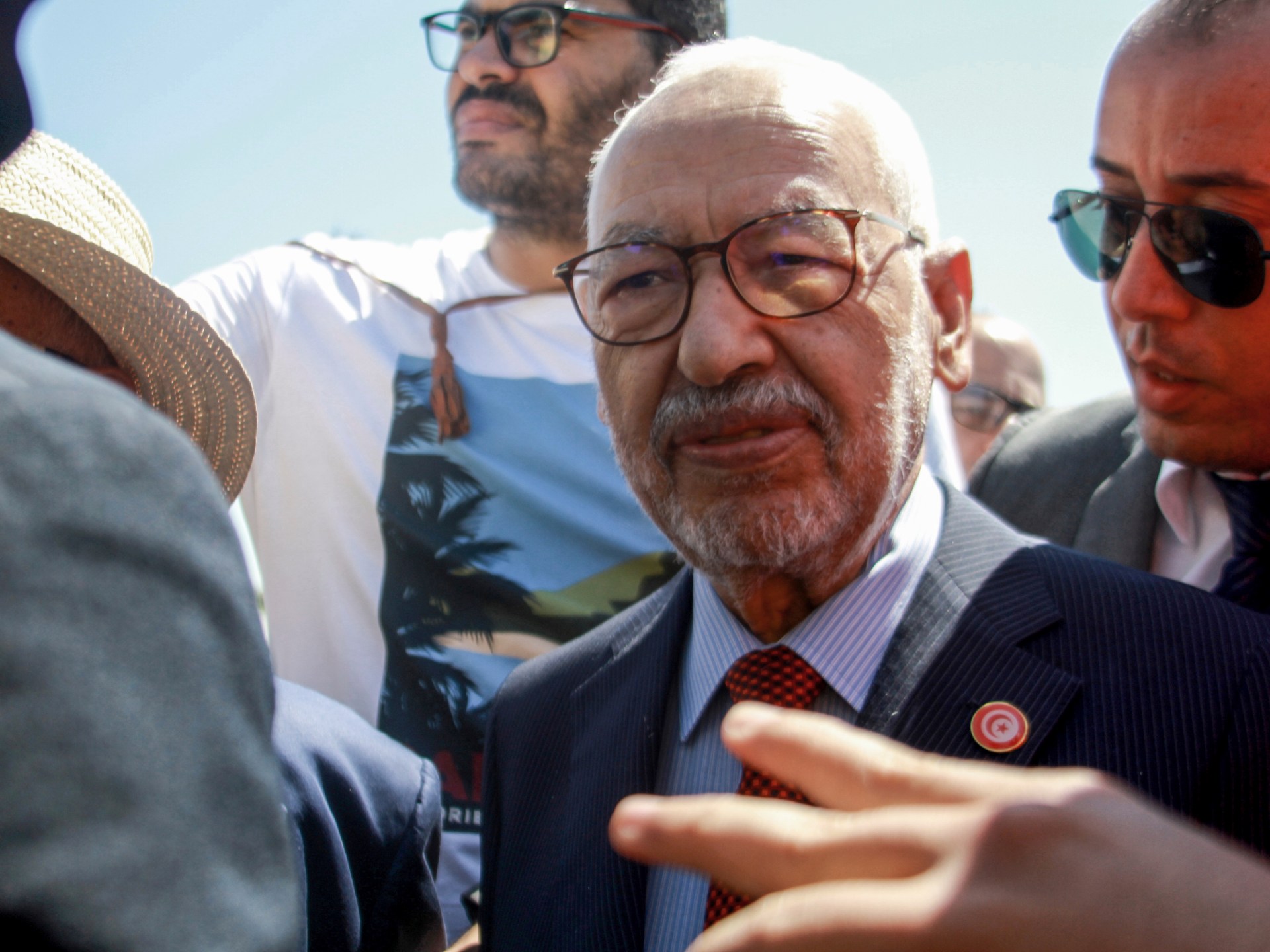
International Committee for Solidarity with Rached Ghannouchi decries ‘repressive campaign’ against Ennahdha party leader.
Marking the second anniversary of the arrest of Tunisia’s prominent opposition leader Rached Ghannouchi, an international committee formed last year to raise awareness about his imprisonment says he is being held “unjustly” and on “trumped-up charges”.
The International Committee for Solidarity with Rached Ghannouchi called for the immediate release of the imprisoned Ennahdha party leader and former speaker of Tunisia’s parliament.
In a statement on Thursday, it said that more than 15 cases have been brought against Ghannouchi, and “several unjust convictions and sentences” have been issued.
The most recent of these was a 22-year prison sentence issued in February on charges that included plotting against state security – a case “to which he has no connection”, the committee said.
Earlier this year, Ghannouchi was also sentenced to three years for accusations that his party received foreign contributions.
The 83-year-old, who has been the main rival of Tunisian President Kais Saied, was arrested in April 2023 and sentenced to one year in prison on charges of incitement.
He has been a vocal critic of Saied, and became the highest-profile figure to be arrested in the continuing consolidation of power by the president who was elected in 2019 and has overseen a wave of repression and legal reforms that have expanded his rule.
“These unjust trials and sentences take place within the context of a widespread repressive campaign led by Kais Saied’s regime, which is targeting opposition voices from all backgrounds, repressing organised action in all its forms, controlling the media and civil society, and silencing critical voices,” the committee said in its statement.
It said Saied’s government has to “exploit the judiciary as a tool for settling political scores”.
‘An era of political prisoners’
The committee’s statement comes just days after United States-based Human Rights Watch (HRW) called on the Tunisian government to halt its crackdown on opposition and free all detainees.
The rights group said arbitrary detention was being used to eliminate dissent in Tunisia amid a trial of prominent opposition figures – including Ghannouchi – on conspiracy charges.
In a report released Wednesday, HRW reinforced opposition leaders’ concern over what they call the authoritarian rule of Saied since he dissolved parliament in 2021 and began ruling by decree.
The opposition described Saied’s move as a coup. He has denied such accusations, professing he would not become a dictator but rather is trying to rescue the North African country from political chaos and rampant corruption.
The report said Tunis had turned arbitrary detention into a cornerstone of repressive policy.
“Saied’s government has returned the country to an era of political prisoners, robbing Tunisians of hard-won civil liberties,” said Bassam Khawaja, deputy Middle East and North Africa director at HRW.
Since 2023, authorities have arrested dozens of prominent political opposition figures as well as journalists, activists and lawyers in a crackdown critics say has undermined the democracy gained in the 2011 Arab Spring popular uprising.
Middle East
At least one killed by Israeli strike near Sidon in southern Lebanon | Israel attacks Lebanon News
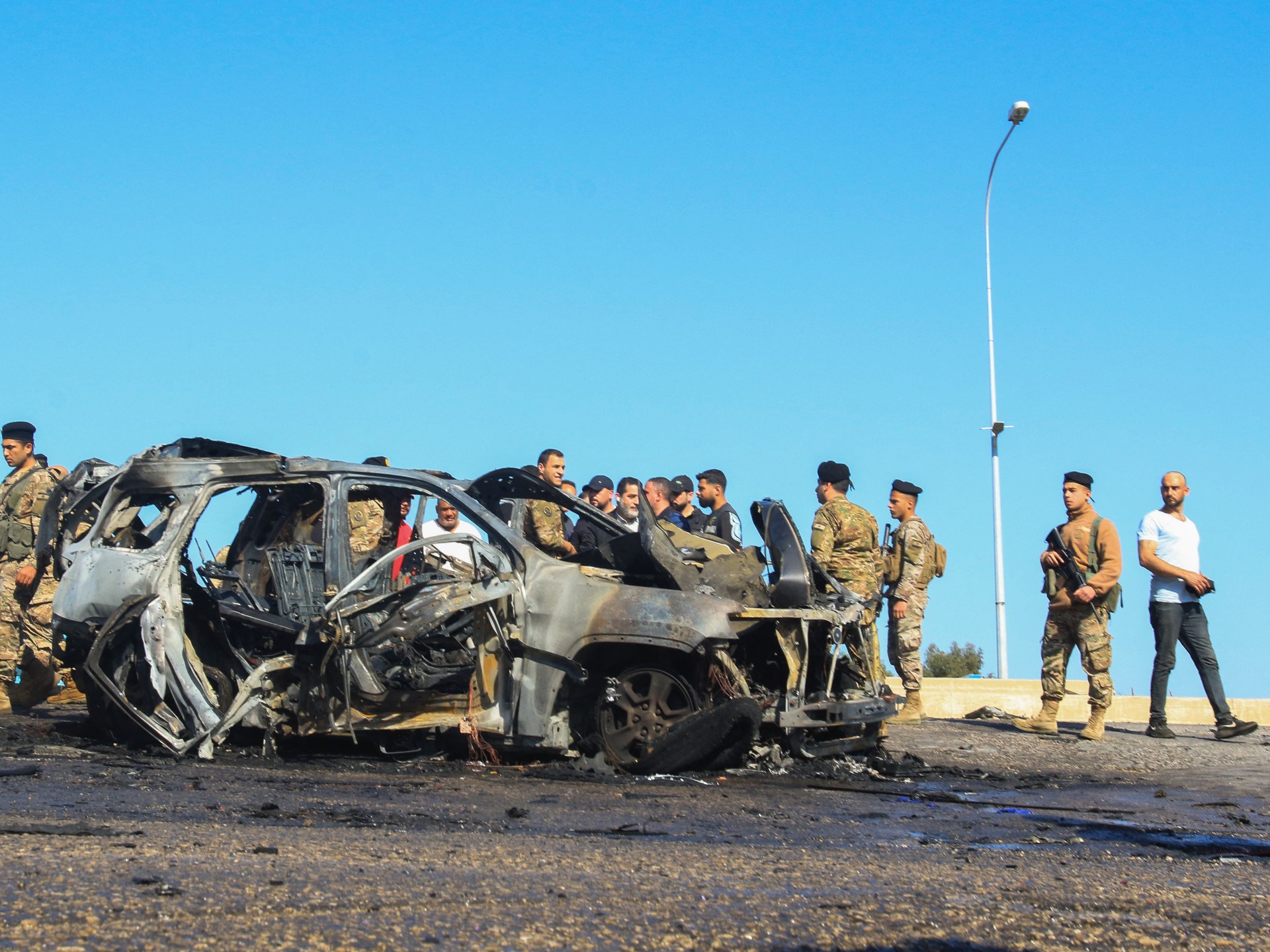
Israel has continued to conduct near-daily strikes in Lebanon despite a ceasefire with Hezbollah last November.
Lebanon’s Health Ministry has said an Israeli strike on a vehicle near the southern coastal city of Sidon killed one person, with Israel announcing that an attack in the same area had targeted a Hezbollah operative.
Despite a ceasefire last November that sought to halt more than a year of conflict between Israel and Iran-backed Hezbollah, Israel has continued to conduct near-daily strikes in Lebanon.
“The attack carried out by the Israeli enemy against a car on the Sidon-Ghaziyeh road resulted in one dead,” a Health Ministry statement said on the fourth consecutive day of Israeli attacks in the south on Friday.
An AFP journalist said the Israeli attack hit a four-wheel-drive vehicle, sending a pillar of black smoke into the sky.
At the scene of the strike, members of the security forces stood guard as a crowd gathered to look at the charred remains of the vehicle after firemen put out the blaze.
Israel’s military later said it had killed a member of Hezbollah in the area.
“Earlier today [Friday], the IAF [Israeli air force] conducted a precise strike in the area of Sidon and eliminated the Hezbollah terrorist Muhammad Jaafar Mannah Asaad Abdallah,” a military statement said.
It added that Abdallah was “responsible, among other things, for the deployment of Hezbollah’s communication systems throughout Lebanon”.
The Israeli military also said it was behind other attacks this week that it claimed had killed Hezbollah members.
Civilians killed since ceasefire
Hezbollah, significantly weakened by the war, says it is adhering to the November ceasefire, even as Israeli attacks persist.
The United Nations says at least 71 civilians have been killed by Israeli forces in Lebanon since the ceasefire.
Thameen al-Kheetan, spokesperson for the UN Office for the High Commissioner for Human Rights (OHCHR), said on Tuesday that the death toll included 14 women and nine children. He called for investigations into “each and every military action where civilians are killed”.
Under the November ceasefire, Israel was to withdraw all of its forces from south Lebanon and Hezbollah was to pull its fighters back north of Lebanon’s Litani River and dismantle any remaining military infrastructure in the south. But despite the deal, Israeli troops have remained at five south Lebanon positions that they deem “strategic”.
Lebanon’s army has been deploying in the south near the border in regions where Israeli forces pulled back. Lebanese President Joseph Aoun told Al Jazeera on Monday that the army was “dismantling tunnels and warehouses and confiscating weapons bases” south of the Litani “without any problem from Hezbollah”.
On Thursday, a senior Hezbollah official told the Reuters news agency the group is ready to hold talks with the Lebanese president about its weapons if Israel withdraws from southern Lebanon and stops its strikes.
Separately, a Hezbollah official said on Friday that the group categorically refused to discuss handing over its weapons to Lebanon’s army unless Israel withdrew completely from the south and stopped its “aggression”.
“Wouldn’t it be logical for Israel to first withdraw, then release the prisoners, then cease its aggression … and then we discuss a defensive strategy?” Wafiq Safa said in an interview with Hezbollah’s Al Nur radio station.
“The defensive strategy is about thinking about how to protect Lebanon, not preparing for the party to hand over its weapons.”
-

 Conflict Zones2 days ago
Conflict Zones2 days agoHaiti in ‘free fall’ as violence escalates, rights group warns | Armed Groups News
-
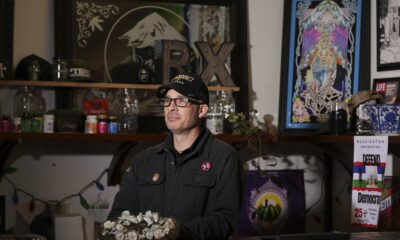
 Lifestyle2 days ago
Lifestyle2 days agoBelievers say microdosing psychedelics helps them. Scientists are trying to measure the claims
-
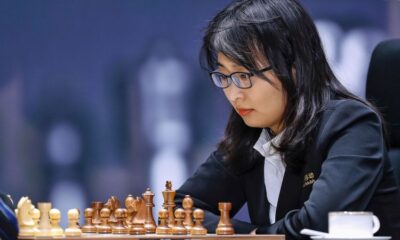
 Sports2 days ago
Sports2 days agoJu Wenjun: Chinese grandmaster makes history by winning fifth Women’s World Chess Championship
-

 Lifestyle2 days ago
Lifestyle2 days agoPicking a team from bars to beam and hoping for 10s: Fantasy leagues in gymnastics are a thing
-
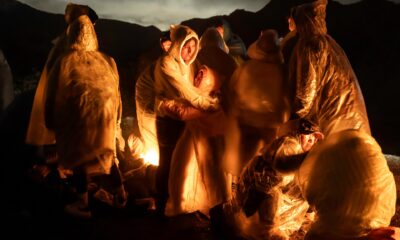
 Middle East2 days ago
Middle East2 days agoPalestinian photographer Samar Abu Elouf wins world’s top photo prize | Gaza News
-

 Sports2 days ago
Sports2 days agoArsenal reaches first Champions League semifinal in 16 years, with Inter Milan also advancing
-
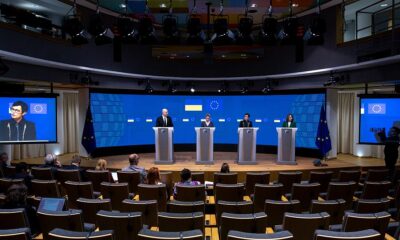
 Africa2 days ago
Africa2 days agoEuropean Union announces new asylum measures
-
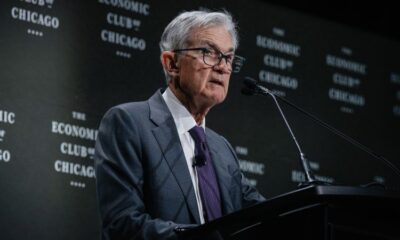
 Europe2 days ago
Europe2 days agoTrump blasts Fed Chair Powell, saying his ‘termination cannot come fast enough’



